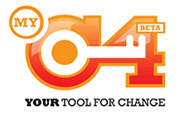
All new providers will have to take a direct stake in the loans they provide. They will have to guarantee 20% of the outstanding portfolio. The guarantee can either be provided by a bank deposit or by a bank guarantee. Loans from an already active partner on the MYC4 market place, Fusion Capital, are already covered by a 15% guarantee.
The agreements with new partners will also adapt a new fee structure. While in the past as much as 2/3 of the provider fees were deducted from the loan upon disbursement, in the future a minimum of 75% of the fee will be payable as the loan repays. Limiting fees payable on disbursement to a maximum of 25% of the total fees will align the interest of the providers with the interest of the investors, says Colding.
MYC4 will also shift towards a new kind of partners. The reasoning is that microfinance partners, which MYC4 solely worked with in the past, sometimes have cheaper access to capital already and cannot reach the 3 loan segments MYC4 wants to target in the future: SME, rural and youth.
SME (small and medium size enterprises)
To fund SME loans MYC4 aims to partner with consulting and private equity companies that already work with these clients. Colding cited Fusion Capital as an example.
Rural
Here MYC4 will have supply chain partners and outgrower schemes. Colding gave two interesting examples for the supply chain model. A large Danish supermarket chain wants to increase the amount of African produce on offer. The loans will be used to enable the farmers to upscale their production. And most interesting: Colding says MYC4 will be advertised on the products (e.g. bags of frozen peas) as well as in the supermarket. A solar system company wants to sell more solar power systems in Kenya. Here MYC4 loans will allow groups of people to buy a system, the manufacturer is paid upon delivery and the group repays MYC4 investors over the loan term. While these are not business but consumption loans, Colding says MYC4 will allow them because of their social and environmental impacts. A third example, which is already available to invest in on the MYC4 market place is loans to Armajaro farm shops in Ghana, which have been fully underwritten by Armajaro, one of the world’s largest cocoa bean wholesaler.
Youth
65% of the population in Sub-Saharan Africa are under the age of 25. Many are well educated but have slim employment chances, leaving starting a business as only option. High risk normally makes funding unavailable to them. Funding via MYC4 investors would not be sustainable for the same reason. Therefore MYC4 partners with the International Labour Organisation (ILO), Geneva. The ILO and the provider partners will underwrite up to 90 percent of the risk.
